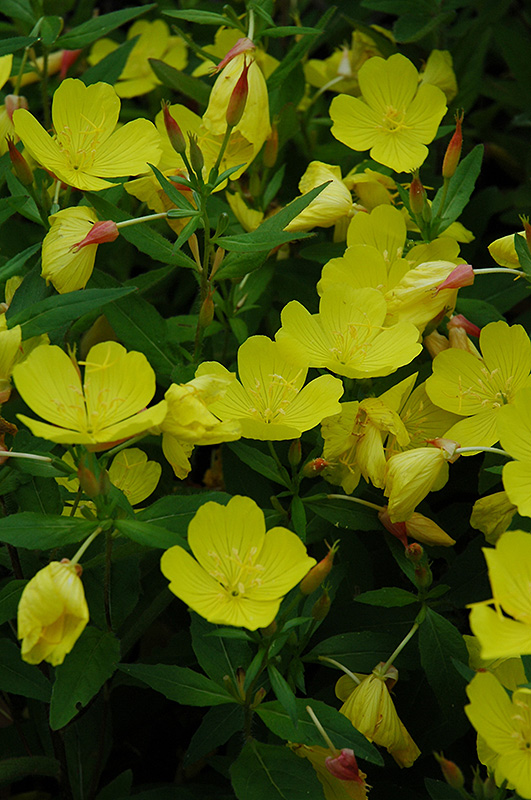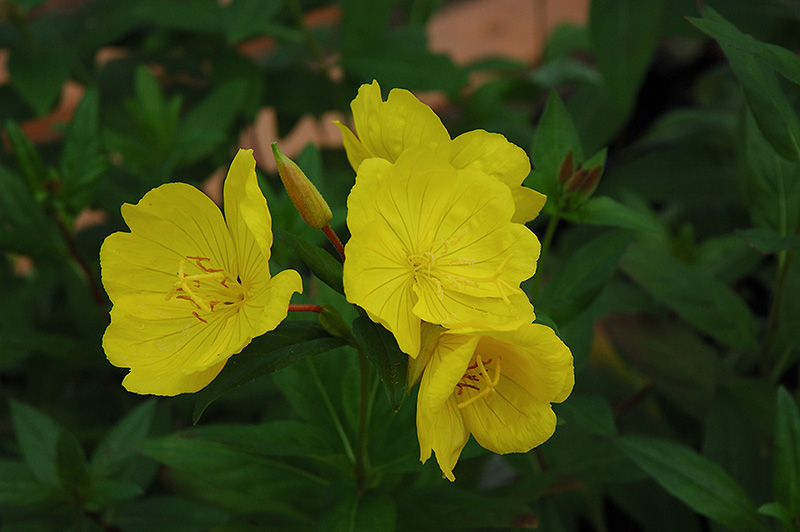Height: 24 inches
Spacing: 20 inches
Sunlight:
![]()
Hardiness Zone: 3
Other Names: Oenothera fruticosa
Ornamental Features
Yellow Sundrops has masses of beautiful yellow cup-shaped flowers along the stems from mid spring to mid summer, which emerge from distinctive antique red flower buds, and which are most effective when planted in groupings. Its narrow leaves are green in colour. As an added bonus, the foliage turns a gorgeous burgundy in the fall.
Landscape Attributes
Yellow Sundrops is an herbaceous perennial with a ground-hugging habit of growth. Its medium texture blends into the garden, but can always be balanced by a couple of finer or coarser plants for an effective composition.
This plant will require occasional maintenance and upkeep, and is best cleaned up in early spring before it resumes active growth for the season. Gardeners should be aware of the following characteristic(s) that may warrant special consideration;
- Spreading
Yellow Sundrops is recommended for the following landscape applications;
- Mass Planting
- Groundcover
- Naturalizing And Woodland Gardens
Planting & Growing
Yellow Sundrops will grow to be about 24 inches tall at maturity, with a spread of 24 inches. When grown in masses or used as a bedding plant, individual plants should be spaced approximately 20 inches apart. Its foliage tends to remain dense right to the ground, not requiring facer plants in front. It grows at a fast rate, and under ideal conditions can be expected to live for approximately 15 years. As an herbaceous perennial, this plant will usually die back to the crown each winter, and will regrow from the base each spring. Be careful not to disturb the crown in late winter when it may not be readily seen!
This plant should only be grown in full sunlight. It prefers dry to average moisture levels with very well-drained soil, and will often die in standing water. It is considered to be drought-tolerant, and thus makes an ideal choice for a low-water garden or xeriscape application. It is not particular as to soil pH, but grows best in sandy soils. It is somewhat tolerant of urban pollution. This species is native to parts of North America. It can be propagated by division.


